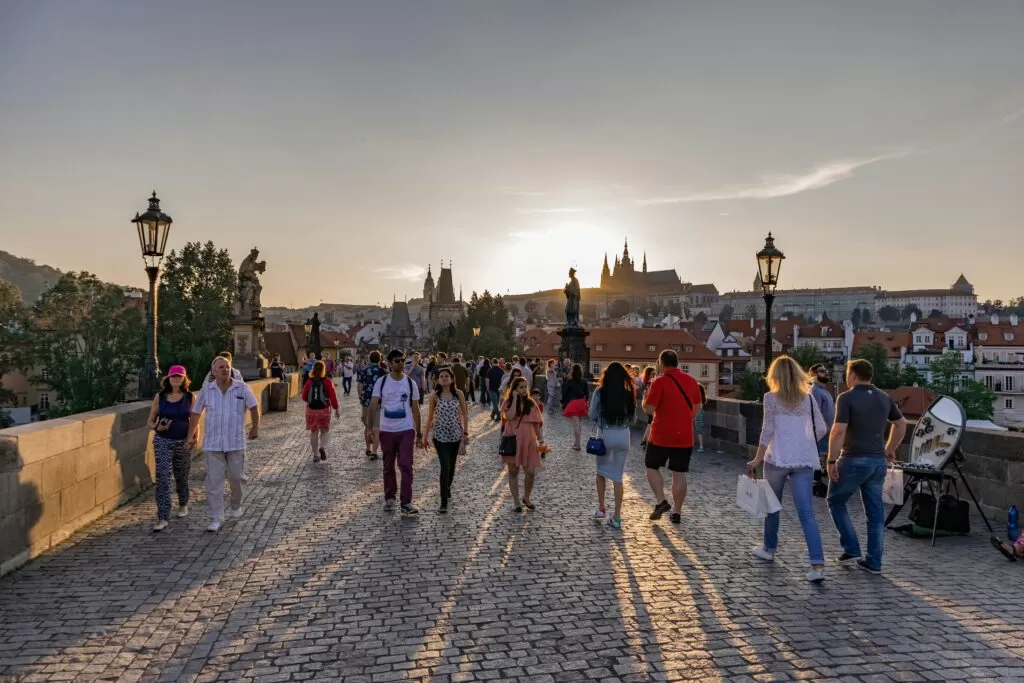5th of July: A Celebration of Heritage and Identity in Czechia


The 5th of July is a significant day in the Czech Republic, also known as Czechia, as it commemorates the arrival of the Christian missionaries Cyril and Methodius in Great Moravia in 863 AD. This holiday, often referred to as Saints Cyril and Methodius Day, holds profound cultural, historical, and psychological significance for the Czech people, offering a moment of reflection on national identity, heritage, and the collective psyche.
The Historical Significance
Cyril and Methodius, two Byzantine brothers, are credited with bringing Christianity to the Slavic peoples, fundamentally shaping the cultural and religious landscape of the region. They also created the Glagolitic alphabet, which later evolved into the Cyrillic script, aiding in the spread of literacy and education. This historical milestone is not merely a religious observance but a celebration of cultural enlightenment and the enduring influence of these two figures on Slavic identity.
Cultural Reflection and Identity
For the Czech people, the 5th of July is an opportunity to reflect on their cultural roots and national identity. In a world increasingly marked by globalization and rapid change, such moments of reflection are crucial for maintaining a sense of continuity and connection to one’s heritage. This day allows Czechs to revisit their history, fostering a sense of pride and unity. It’s a reminder of the resilience and adaptability of their culture, which has survived and thrived through various historical upheavals.
Psychological Impacts of Celebrations
From a psychological perspective, national holidays like the 5th of July play a significant role in individual and collective mental health. These celebrations provide a structured opportunity for people to come together, reinforcing social bonds and community spirit. They offer a break from the daily grind, allowing individuals to engage in leisure activities, which can reduce stress and improve overall well-being.
Participating in cultural traditions and rituals also helps individuals feel part of something larger than themselves. This sense of belonging can enhance self-esteem and provide a buffer against feelings of isolation and loneliness. For many, such holidays are a time to reconnect with family and friends, strengthening personal relationships and support networks that are vital for mental health.
Community and Collective Memory
The communal aspect of the 5th of July fosters a collective memory, which is essential for the psychological health of a society. Shared memories and traditions create a narrative that individuals can relate to, fostering a sense of shared identity and continuity. This collective memory helps communities navigate present challenges by drawing strength and lessons from their past.
Modern Celebrations
In contemporary Czechia, the 5th of July is marked by various activities, including religious services, cultural events, and family gatherings. Many Czechs visit important historical sites and participate in events that celebrate their heritage. These activities not only honor the past but also provide a sense of enjoyment and relaxation, contributing positively to mental health.
The 5th of July in Czechia is more than just a historical commemoration; it is a celebration of cultural identity, community, and mental well-being. By remembering and honoring Saints Cyril and Methodius, Czechs reinforce their cultural heritage and strengthen the social bonds that are essential for a healthy society. This day serves as a poignant reminder of the power of tradition and the importance of taking time to reflect on and celebrate one’s roots. For those interested in mental health, understanding the deep cultural and psychological significance of such holidays offers valuable insights into the resilience and cohesion of communities.
